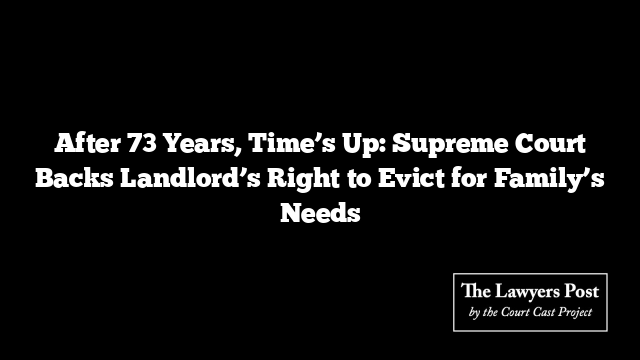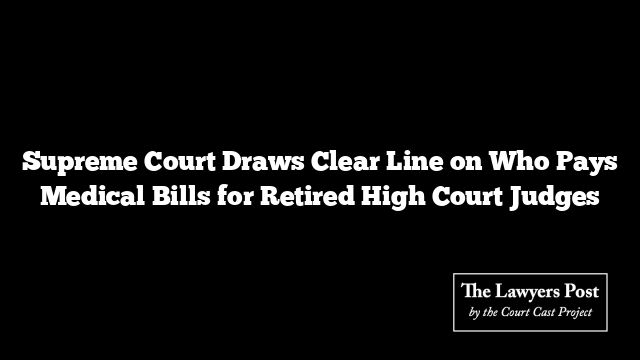The Supreme Court has drawn a firm line: a landlord’s right to reclaim property isn’t just about their personal needs—it’s about their family’s future too.
In a decision delivered Thursday, the Court underscored that the definition of “bona fide requirement” must be interpreted generously. If a landlord’s family needs the property, that counts just as much as the landlord needing it themselves.
The case involved a staggering timeline: the tenant had occupied the landlord’s property for 73 years—63 of those years after the original lease had expired. The landlord sought to evict the tenant to house his disabled, unemployed son, who had no other property and earned a meager income.
The tenant tried to resist, arguing eviction would cause hardship. But there was a major flaw: he couldn’t prove he’d even tried to find another place to live during the decades-long dispute. The Court wasn’t convinced by vague claims of hardship unsupported by action.
Citing earlier precedent, the Court stressed that if a tenant makes no real effort to find alternative accommodation, it only strengthens the landlord’s claim. In this case, there was no record of any such attempt across 63 years.
The justices also brushed aside arguments suggesting the landlord’s family business was thriving enough to make eviction unnecessary. No evidence supported that idea either.
With that, the tenant’s long stay came to an end. The Court ruled that the landlord’s need was genuine, the tenant’s defenses flimsy, and the eviction justified.
The battle, fought under the title Murlidhar Aggarwal (D.) through L.R. Atul Kumar Aggarwal vs Mahendra Pratap Kakan (D.) through L.R.s and Others, finally reached its inevitable conclusion: the property will return to the landlord’s family.





